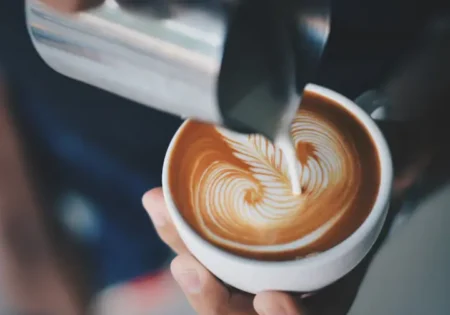 Coffee is the go-to fuel for millions of people every morning — and sometimes late into the day. But when it comes to sleep, there’s a lot of confusion, half-truths, and flat-out myths.
Coffee is the go-to fuel for millions of people every morning — and sometimes late into the day. But when it comes to sleep, there’s a lot of confusion, half-truths, and flat-out myths.
Let’s bust some of the most common myths about coffee and sleep, and get clear on what it really does to your body.
Myth 1: Coffee Doesn’t Affect You If You’re Used to It
False. Even if you’re a regular drinker and feel like caffeine “does nothing” — it still affects your brain and body.
Caffeine blocks adenosine, the chemical that builds sleep pressure in your brain. So while you might not feel jittery, it still delays your internal clock and reduces deep sleep quality.
Myth 2: You Can Sleep Fine After an Evening Coffee
Some people say they can fall asleep after a late cappuccino — and maybe they can. But here’s the catch:
Caffeine reduces deep sleep, even if you fall asleep normally. That means:
- Less restorative sleep
- More nighttime awakenings
- Feeling groggy the next day (even after 8 hours)
The result? You may drink more coffee to fix the tiredness — and start a cycle.
Myth 3: Espresso Has More Caffeine Than a Regular Coffee
Surprisingly, false. Espresso is more concentrated, but a regular cup of drip coffee usually has more total caffeine because of the larger serving size.
- 1 shot of espresso = ~65mg caffeine
- 1 cup of drip coffee = ~90–120mg caffeine
If you’re worried about caffeine late in the day, it’s not just what you drink — it’s how much.
Myth 4: Decaf Means No Caffeine
Not true. Decaf coffee still contains small amounts of caffeine — usually 2–5mg per cup. For most people, that’s no problem. But if you’re extra sensitive or drinking it at night, it can still have a mild effect.
Myth 5: Coffee in the Afternoon Is Always a Bad Idea
Not necessarily. The key is timing and your personal metabolism.
- Caffeine has a half-life of 4–6 hours, which means it’s still in your system hours later
- If you go to bed at 10 PM, cutting off caffeine by 2 PM is a good rule of thumb
But some people are faster metabolizers and can handle a little more flexibility.
Bonus: Caffeine Isn’t Evil — Just Mistimed
Caffeine isn’t the enemy of sleep. It’s about how and when you use it.
Best tips:
- Use coffee to boost mornings, not to push through late nights
- Switch to water, herbal tea, or decaf by mid-afternoon
- If you’re having sleep issues, try a 7-day caffeine break and see what changes
Final Thought
Coffee isn’t ruining your sleep — your timing might be. Know your limits, respect your rhythm, and enjoy caffeine in a way that works with your body, not against it.
Because a good night’s sleep + a great morning brew? That’s the real win-win.
Picture Credit: Freepik
